Recommended Reads for St David’s Day

Happy St David's Day! We have extra reason to celebrate this year with the recent announcement that funding has been secured for a new Shared Reading project in North Wales!
Funded by Big Lottery Wales, the project, Feel Better With a Book, aims to tackle mental health problems and reduce social isolation in Gwynedd, Conwy and Anglesey by training over 130 volunteers to deliver Shared Reading in libraries, community centres and care homes, reaching over 850 beneficiaries.
This new Shared Reading project will build on The Reader's previous Big Lottery funded project Make Friends With a Book which was launched in 2012. Over 60 volunteers were trained to read one-to-one with socially isolated older people and deliver Shared Reading groups in libraries across six counties.
To celebrate the return of Shared Reading to the beautiful Welsh landscape, a few of our Readers have revisited their favourite piece of Welsh literature on St David's Day:
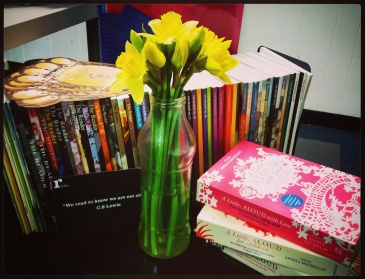 Miracle on St David's Day
Miracle on St David's Day
Gillian Clarke
This morning Emma, our Comms Assistant, bounded into the office with a bunch of daffodils. Considering the day, Gillian Clarke’s Miracle on St. David’s Day popped into my head, a poem that features in The Reader’s A Little, Aloud anthology.
Last week Storm Doris destroyed Michael Rosen’s Bear Hunt, Chocolate Cake & Bad Things, a Storybarn project that I’ve poured my heart and soul into for months. To see all our hard work destroyed so easily took me to a very dark place; it felt like somehow the environment was reflecting this. We were still, very much, in the depths of Winter.
But this week there’s been a change, we have a plan (watch this space) - the clouds have parted and the daffodils are blooming. The world seems like a positive place once more.
A big, mild man is tenderly led
to his chair. He has never spoke .
His labourer’s hands on his knees, he rocks
gently to the rhythm of the poems.
I read to their presences, absences,
to the big dumb labouring man as he rocks.
He is suddenly standing, silently,
huge and mild, but I feel afraid. Like slow
movement of spring water or the first bird
of the year in the breaking darkness,
the labourer’s voice recites “The Daffodils”
On St. David’s Day our thoughts turn to our Welsh brethren. We recently announced a new outreach project, funded by The Big Lottery Fund, to tackle mental health and social isolation issues in North Wales. Shared Reading is a real solution to real problems; we know that connecting with great literature and with our group members can help us realise the changes they want to make to our lives.
In Miracle on St. David’s Day, Gillian Clarke shows a reaction we see regularly in our Shared Reading groups - a breakthrough moment, a reaction caused by the group environment and the power of stories and poems. She also talks about the “presences and absences”, we hope that by creating 130 new volunteering opportunities in the region we’ll be able to reach over 850 people. Whether these new group members are present or seemingly absent, as in the case of the labourer, we know that using the inherent power of stories and poems will help change the lives of those we read with.
If you run a weekly Shared Reading group, or would just like a bit of an insight into our work, I’d suggest you try Gillian Clarke’s Miracle on St. David’s Day.
(Martin, Marketing & Communications Coordinator)
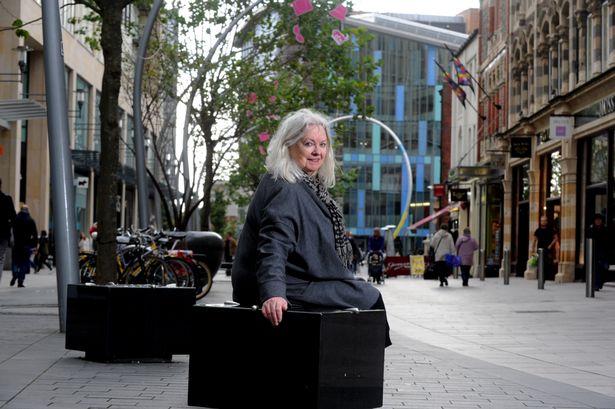 Great minds clearly think alike, I'll also be reading Gillian Clarke's Miracle on St. David's Day today!
Great minds clearly think alike, I'll also be reading Gillian Clarke's Miracle on St. David's Day today!
I’ve had the pleasure of reading this poem to many people over the years and I am still taken aback and humbled by the power that it holds over me, each time, time and again. A power that never wears out.
After reading this poem, people are initially left speechless, words seem to fail but it is because we are observing ‘the flowers silence’, eyes make contact and nod in mutual understanding. This poem reminds us what it is to be human at the most elemental of levels, what we ultimately share at our heart’s core with others – even those who we may have felt no kinship or connection with up until the moment of reading this poem – and how the language of poetry can connect self to self like no other, can cross the chasms of different life experiences however awful for some, however great for others, and bring us in touch with each other at the deepest level possible.
We all remember, in our own way, that before the trials of life kicked in, ‘there was a music/ of speech’ and that we all ‘had something to say’, something meaningful, worthwhile, and something that others needed to listen to as well.
Read this poem for yourself today, and if you can, for someone else tomorrow. And then read more of Gillian Clarke, one of the best contemporary Welsh poets alive today.
(Clare, Practice Mentor)
The Waterfall
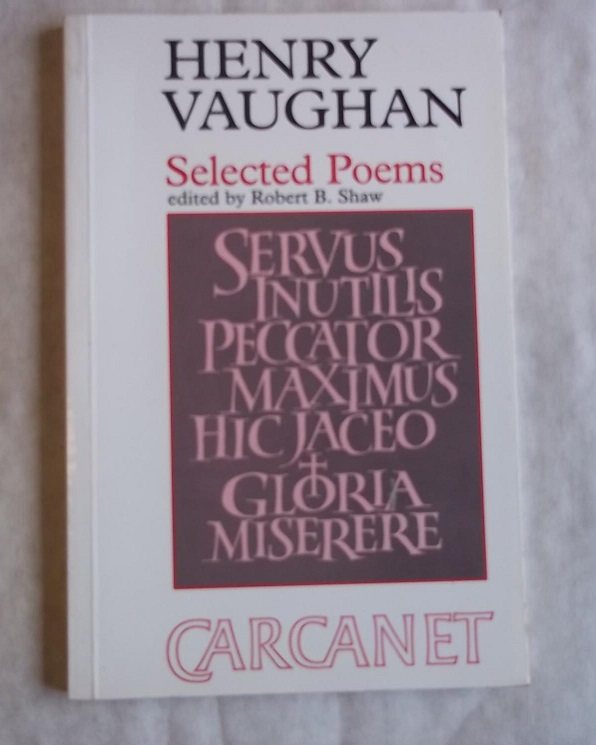
‘With what deep murmurs through time’s silent stealthDoth thy transparent, cool, and wat’ry wealth
Here flowing fall,
And chide and call’
But I’m particularly drawn to the idea of time possessing a ‘silent stealth’ – it seems unconquerable, unknowable but at the same time reassuring; while the days and months can whizz by us in a blur thinking of time in this way makes me feel grounded and more likely to pay attention to the ‘deep murmurs’ that linger within.
‘Should poor souls fear a shade of night,
Who came, sure, from a sea of light?
Or since those drops are all sent back
So sure to thee, that none doth lack,”
A Child's Christmas in Wales
Dylan Thomas
"Years and years ago, when I was a boy, when there were wolves in Wales, and birds the color of red-flannel petticoats whisked past the harp-shaped hills, when we sang and wallowed all night and day in caves that smelt like Sunday afternoons in damp front farmhouse parlors, and we chased, with the jawbones of deacons, the English and the bears, before the motor car, before the wheel, before the duchess-faced horse, when we rode the daft and happy hills bareback, it snowed and it snowed.
A festive favourite, I can't read Dylan Thomas' A Child's Christmas in Wales without hearing it in a Welsh accent. It is a beautiful piece of prose composed to be sung, performed or at the very least read aloud, preferably around the fire on Christmas Eve. Capturing the magic and adventure of a child's mind in what might otherwise be a normal, even dreary seaside town, Thomas creates a wintry world as dear to Christmas as Lapland. There is a wildness to the landscape, an expanse, even in this urban setting, in the way the streets roll down to the 'two-tongued sea' which creates an endless stream of possibility so that you cannot quite be sure what lurks around the corner - wolves, or just the postman? The people too seem of an ancient race, wise and musical and sharp tongued in their wit yet full of warmth and comfort. In his nostalgia, Thomas creates a timeless snapshot of a small Welsh town as though in a snow globe.
(Emma, Communications Assistant)
Rich
RS Thomas
One of the poems by R S Thomas that we’ve shared most frequently in our shared reading groups is simply titled ‘Rich’. It makes me think about what richness means in his poems, and how this is maybe not something to be gathered but rather noticed and treasured in the momentary glimpses that life gives us. In ‘The Small Window’, it is the privilege 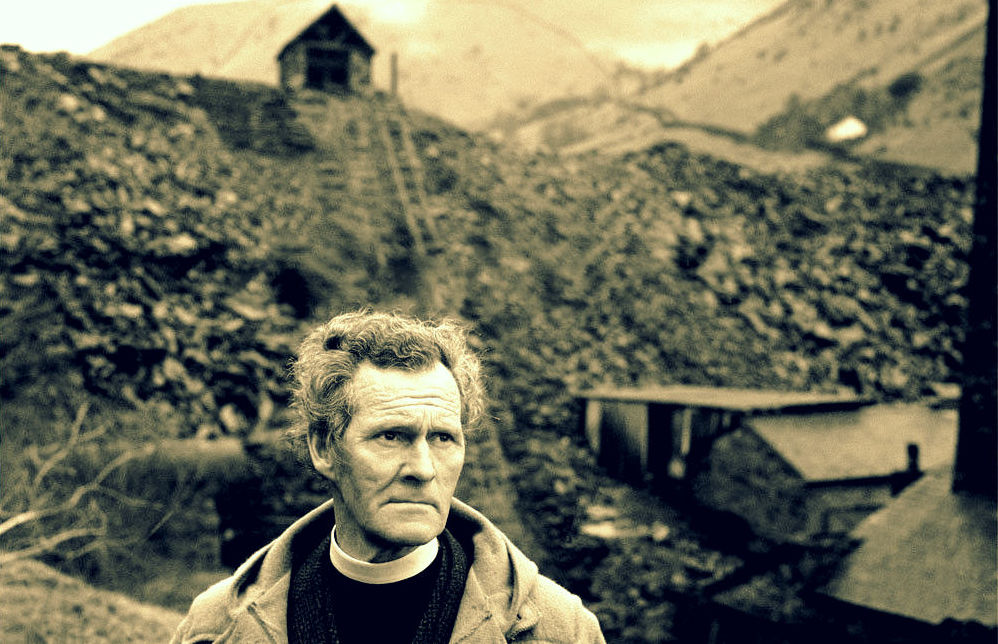 particularly of those who live in Wales, to witness the changes in its landscape in this way:
particularly of those who live in Wales, to witness the changes in its landscape in this way:
In Wales there are jewels
To gather, but with the eye
Only.
The small window and the limited number of people who can catch these views at any one time is a part of it. It is as if the small numbers, the slow pace of things, and the natural quiet of the scene allows for these momentary ‘jewels’ to appear. In this kind of environment, even ‘the moor’ can become hallowed ground:
It was like a church to me.
I entered it on soft foot,
Breath held like a cap in the hand.
It was quiet.
(Grace, Specialist Practice Mentor)

Share
Related Articles
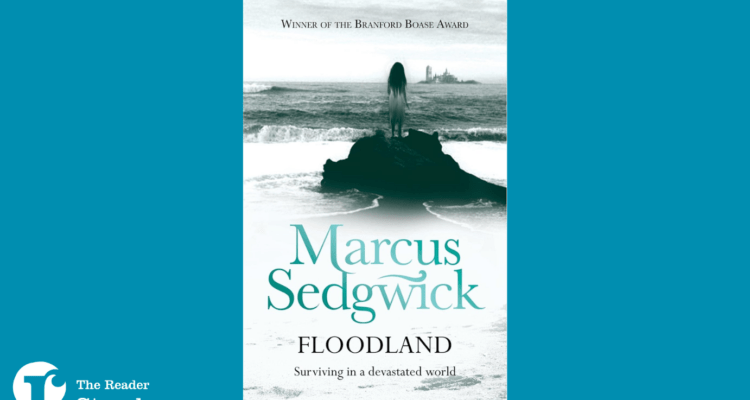
The Storybarn Selects… From The Reader Bookshelf
Our last deep dive into the 2023/24 Children and Young People's Reader Bookshelf is a review of Floodland by Marcus Sedgwick…
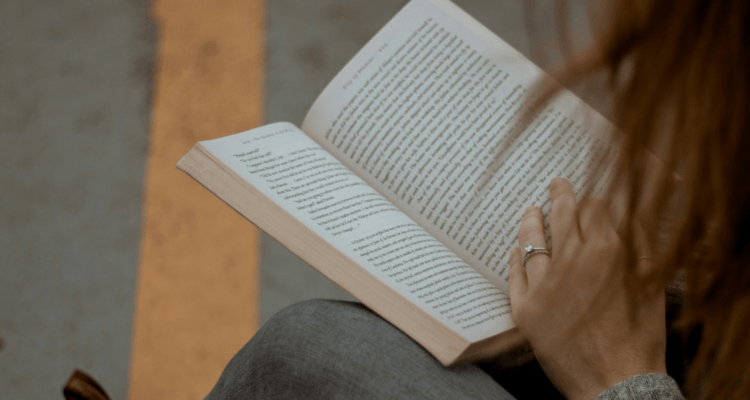
March’s Stories and Poems
March’s stories, extracts and poems have been chosen on the theme ‘Moving on’, which perhaps feels especially relevant as we…
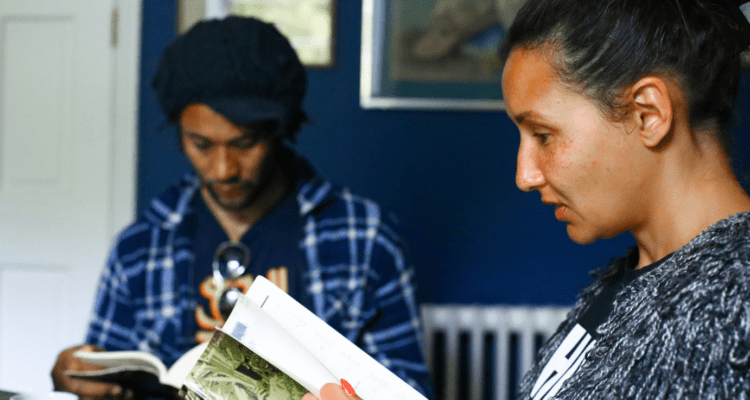
February’s Stories and Poems
February’s selection of stories, extracts and poems have been chosen on the theme of ‘Making connections’. We spend so much…


